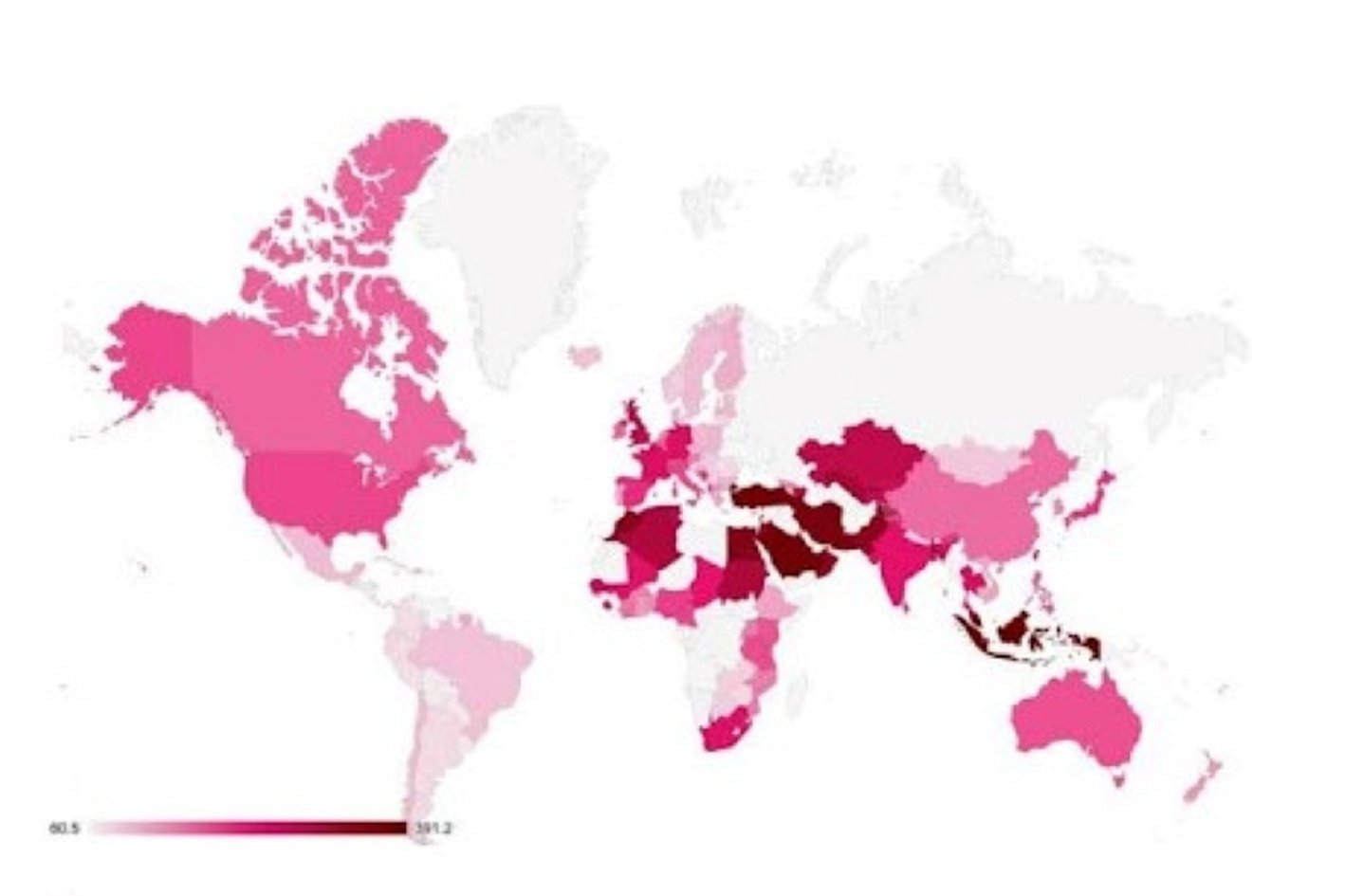The Landscape classification assesses Muslim travelers' comfort, safety, and ease of faith practices while traveling. These include any dress code requirements as well as hate crimes. Furthermore, climate facilitation offers a summary of technological advancements and innovations that will aid the destination's tourism facilities to grow. The metrics for visitor arrivals in GMTI 2022 report are based on the 2019 guest arrival date.
The new category "Sustainability" is added to the ACES framework, increasing tourists' environmental awareness and interest. Sustainability takes into account the previous year's carbon emissions, the percentage of renewable energy used, and restrictions on the use of single-use plastics by the mentioned destinations in the report. The top three destinations in this year's environmental classification are Bahrain, Turkey, and Malaysia.
The diagram below shows destinations with the best environmental conditions.
.jpg)
Image Source: Crescentrating
The halal tourism notion revolves around Muslim travelers' needs, which can differ from those of other tourists. Due to the lack of these requirements, Muslim tourists may be hesitant to visit a specific location. For example, the lack of halal food and restaurants can be a source of concern for Muslim travelers and those with whom they interact. Most Muslim travelers need sharia-compliant hotels where the primary focus is on not providing alcoholic beverages and social practices, Muslim prayer facilities, Islamic attire, a segmented gymnasium, and swimming pools for both genders.
The hospitality and tourism industries can limit the effects of ecotourism, promote the well-being of surrounding societies, and foster social justice by enforcing environmental standards in the tourism sector. As a result, the concept of environmentally friendly tourism is gaining traction around the world. Accordingly, destinations willing to satisfy Muslim tourists' requirements may adopt sustainable halal tourism. As global citizens, Muslims are more aware that ecotourism is a positive approach to improving tourism destinations' economic, social, and ecological impact. However, given the significance of global sustainability, it is critical to ensure that halal tourism is conducted correctly.
The issuance of a halal certificate should not be the ultimate goal of tourism companies, but it is necessary to ensure long-term conservation. The Holy Qur'an and the purified Sunnah of the Prophet Mohamed (PBUH) offer guidance on many religious obligations that reflect the fundamental sustainability principles and govern the human relationship with the environment and the entire universe. Meeting religious obligations is not the only motivation for Muslim travelers to support sustainability. Muslim travelers can also be inspired by international sustainable development goals such as eradicating poverty, promoting human well-being, and preventing climate change.
.jpg)
Image Source: Pixaby
The halal tourism market has previously been introduced as one of the most promising globally. According to the Global Muslim Travel Index (GMTI), Muslim tourists are expected to reach 230 million locally and internationally by 2026, injecting $300 billion into the global economy. However, there is a shortage of conceptual and empirical research on the subject of halal tourism and its relationship with sustainability.
The existence of core Muslim-friendly services and key touchpoints at the destination is assessed in the services category. Most services, such as the restaurant industry, were at a halt, with forced temporary closures scheduled for 2020 and 2021. However, they've just reopened after a lengthy hiatus. As a result, 2019 data was used as the baseline for a few sub-criteria in this category. GMTI 2023 is anticipated to record the current condition of these facilities upon their reopening following the pandemic.
The diagram below shows the best destination that offers quality services:

Image Source: Crescentrating
Muslim-friendly establishments are well-known for providing excellent products and services. The availability of halal food and amenities used by Muslims is important in determining the destination. Many people believe that the number of Muslim-friendly travel destinations is extremely limited. However, Muslim destinations are becoming increasingly popular, with more places attempting to expand their halal tourism to attract more Muslim travelers. Here are a few destinations that are known to offer the best service for the halal market:
Indonesia
From hospitality to food, Indonesia makes you feel welcome in every sense of the word, making it one of the best Muslim travel destinations in the world.
Saudi Arabia
The land of Makkah is a gathering place for Muslims from all over the world to fulfill the sacred pilgrimages of Hajj and Umrah.
South Korea
Every year, the capital of South Korea, Seoul, hosts a halal food festival identified as "Halal Restaurant Week."
Japan
The country offers halal food and prayer facilities among the services. At Sumiyakiya, you can also get authentic halal wagyu meat.
Turkey
Nature, food, and music are all spellbinding.
Uzbekistan
In recent years, Uzbekistan's government has made the country transparent to tourists, particularly Muslims.
Egypt
A fusion of culture, fashion, and breathtaking architecture.
Despite the COVID-19 pandemic, things have gone back to normal, and we expect halal tourism to expand. In addition, there has been improved communication between Muslim travelers and destination management to ensure better services.
Download report.